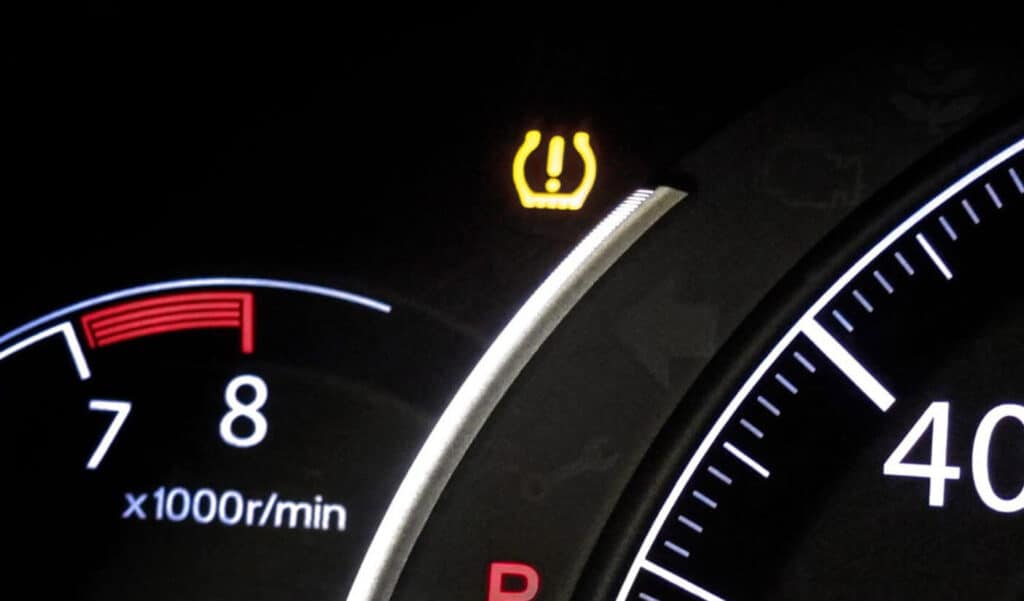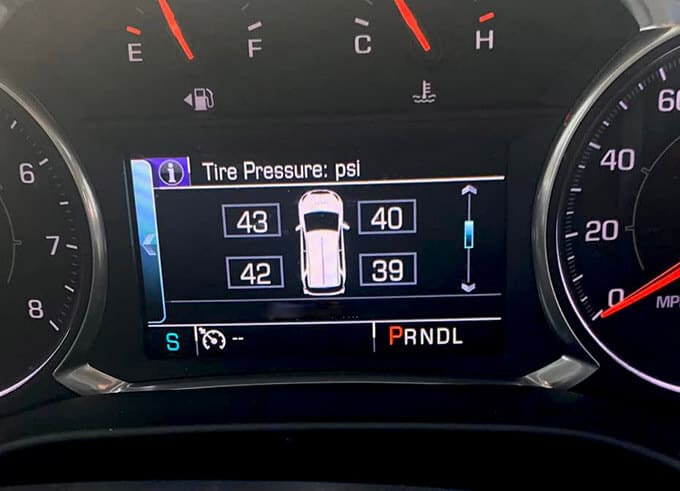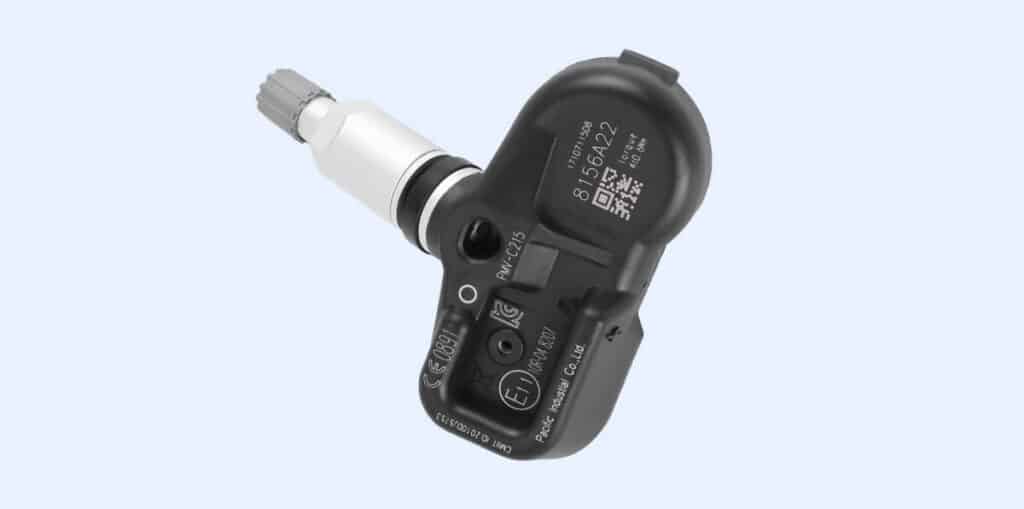Introduction
Having a properly functioning TPMS (Tire Pressure Monitoring System) is important for ensuring safe driving. The TPMS sensor is responsible for monitoring tire pressure and alerting the driver if the pressure falls below a certain level. If the sensor is faulty, it can cause a number of issues while driving. In this article, we will discuss everything you need to know about TPMS sensor replacement, including the cost and symptoms of a faulty sensor.
What is a TPMS Sensor?
A TPMS sensor is a small device located inside each tire that measures the tire pressure and sends that information to the car’s computer. The computer then alerts the driver if the pressure falls below a certain level.

How Much Will it Cost to Replace a TPMS Sensor in Canada?
The cost of a TPMS sensor replacement can vary depending on the make and model of your car, as well as the brand of the sensor. On average, you can expect to pay between $50 to $200 per sensor. The cost of labor will also vary, but it typically takes less than an hour to replace one sensor.
What are the Symptoms of a Faulty TPMS Sensor?
When dealing with a faulty TPMS sensor, it’s important to recognize the symptoms early to prevent potential risks. Here are some common signs that indicate a problem with your TPMS sensor:
1. Persistent TPMS warning light: If the TPMS light on your dashboard remains on constantly, it may indicate an issue with the sensor.
2. Intermittent flashing of the warning light: If the TPMS warning light flashes for more than 60 seconds after starting your car, it’s a sign that the sensor might be malfunctioning.
3. Inaccurate tire pressure readings: A faulty TPMS sensor can give inaccurate pressure readings, making it difficult to maintain the proper tire pressure.
4. Warning light switching on and off: When the TPMS light goes on and off intermittently, it could be a sign that the sensor is not functioning correctly.
If you notice any of these symptoms, it’s essential to have your TPMS sensor checked and replaced if necessary to ensure your vehicle’s safety and performance.
How Long Does a TPMS Sensor Last?
TPMS sensors typically last between 5 to 7 years or around 100,000 kilometers, but this can vary depending on the make and model of your car.
How does a TPMS Sensor Become Defective?
There are several reasons why a TPMS sensor can become defective, including:
A TPMS sensor can become defective due to various reasons, which may impact its performance and accuracy. Some common causes of TPMS sensor failure include:
1. Battery failure: The sensor is powered by a built-in battery that has a limited lifespan. Over time, the battery may deplete, causing the sensor to malfunction or stop functioning altogether.
2. Corrosion: Exposure to moisture, salt, and other corrosive elements can cause the sensor’s metal components to corrode, leading to poor connections or failure of the sensor.
3. Damage from road debris or potholes: The sensor’s location inside the tire makes it vulnerable to damage from road hazards such as debris, potholes, or even collisions.
4. Wear and tear over time: Like any electronic component, a TPMS sensor is subject to wear and tear over time. Constant exposure to temperature fluctuations, vibrations, and other environmental factors can contribute to the sensor’s eventual failure.
5. Improper installation or servicing: If the TPMS sensor is not installed or serviced correctly, it may not function as intended or become damaged.

How A Faulty TPMS Sensor can affect other systems in the car?
A faulty TPMS sensor might not seem like a significant concern, but it can indirectly impact other systems in your car. Some potential effects on your vehicle include:
1. Decreased fuel efficiency: Incorrect tire pressure can increase rolling resistance, causing your engine to work harder and consume more fuel. A faulty TPMS sensor may not provide accurate tire pressure readings, leading to improper inflation and reduced fuel efficiency.
2. Premature tire wear: Improper tire pressure can cause uneven tire wear, reducing the lifespan of your tires. If the TPMS sensor is not functioning correctly, you might not be aware of the need to adjust tire pressure, resulting in premature wear and costly replacements.
3. Compromised handling and braking: Tire pressure plays a crucial role in your vehicle’s handling and braking performance. A malfunctioning TPMS sensor may not alert you to low tire pressure, which can lead to compromised handling, longer braking distances, and increased risk of accidents.
4. Strain on suspension and drivetrain components: Improper tire pressure can put additional stress on your vehicle’s suspension and drivetrain components, leading to accelerated wear and potential failure.
5. Activation of warning lights or error codes: A faulty TPMS sensor may trigger warning lights or error codes related to tire pressure monitoring or other vehicle systems, causing confusion and potential misdiagnosis of the issue.
Is it Safe to Drive with a Faulty TPMS Sensor?
Driving with a faulty TPMS sensor is not recommended due to the potential safety risks associated with improper tire pressure monitoring. A malfunctioning sensor may not provide accurate tire pressure readings or timely alerts, leaving you unaware of potential tire issues. This lack of information can lead to increased risk of tire blowouts, compromised vehicle handling and braking, and premature tire wear.
While it may be possible to drive with a faulty sensor, addressing any TPMS sensor issues as soon as possible is crucial to ensure the safety and performance of your vehicle. Timely maintenance and repair help mitigate risks on the road and maintain the longevity of your tires, ultimately contributing to a safer and more enjoyable driving experience.
How Can I Make My TPMS Sensor Last Longer?
• Properly inflate your tires to the recommended pressure
• Avoid driving over potholes or other road hazards
• Clean your tires regularly to prevent corrosion
• Replace the sensor battery when necessary

Conclusion
A faulty TPMS sensor can compromise the safety of your vehicle, so it’s important to replace it as soon as possible if it is malfunctioning. While the cost of replacement can vary, it’s a relatively simple and quick fix that can help prevent more serious issues down the road. By following proper maintenance guidelines, you can help extend the life of your TPMS sensor and ensure safe driving.
Next Steps
Book Your TPMS Sensor Replacement
The service most frequently booked by those who read this article is TPMS Sensor Replacement. Uchanics’ expert technicians make the process even more convenient by bringing the service right to your doorstep. We perform this job at your home or office, covering over 40 cities in Ontario, including Oshawa, Ajax, Toronto, Scarborough, Mississauga, Brampton, and more. Our commitment to excellence has earned us more than 700 glowing 5-star reviews. Choose Uchanics for your TPMS Sensor Replacement and experience unparalleled convenience and top-quality service.
